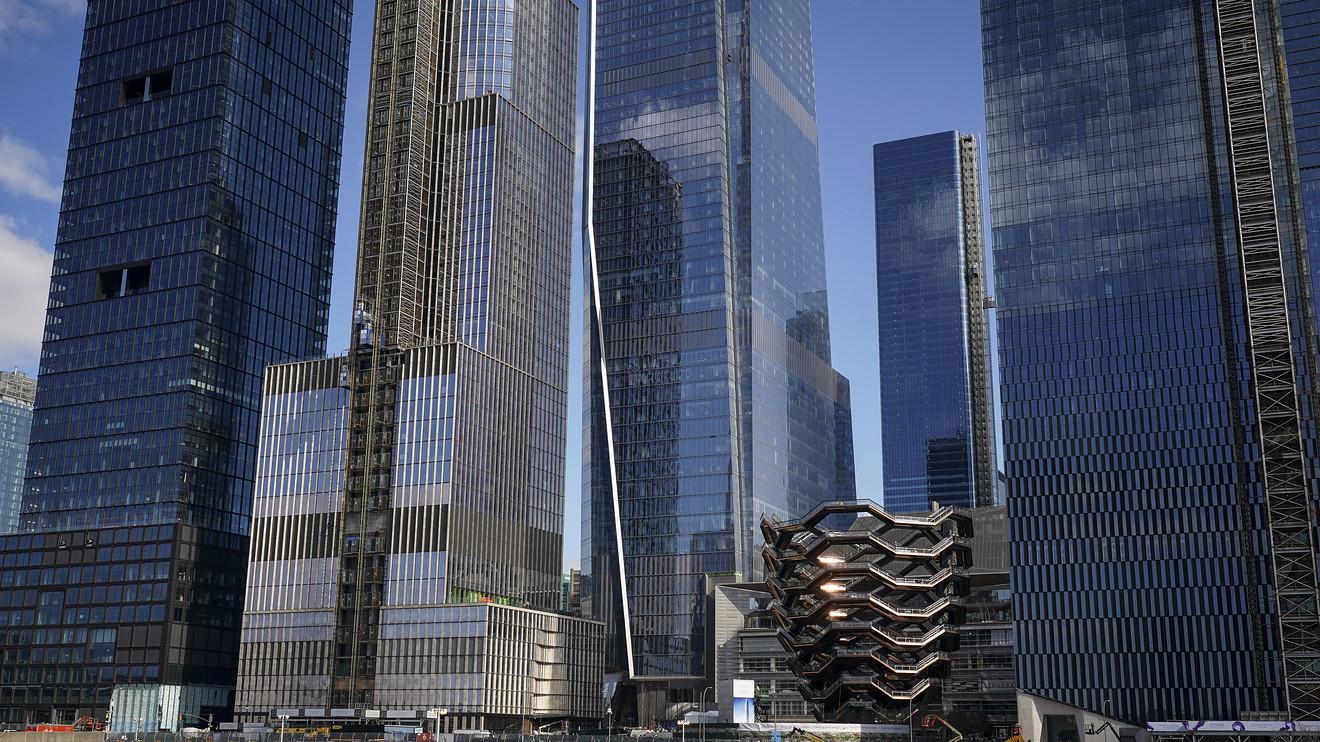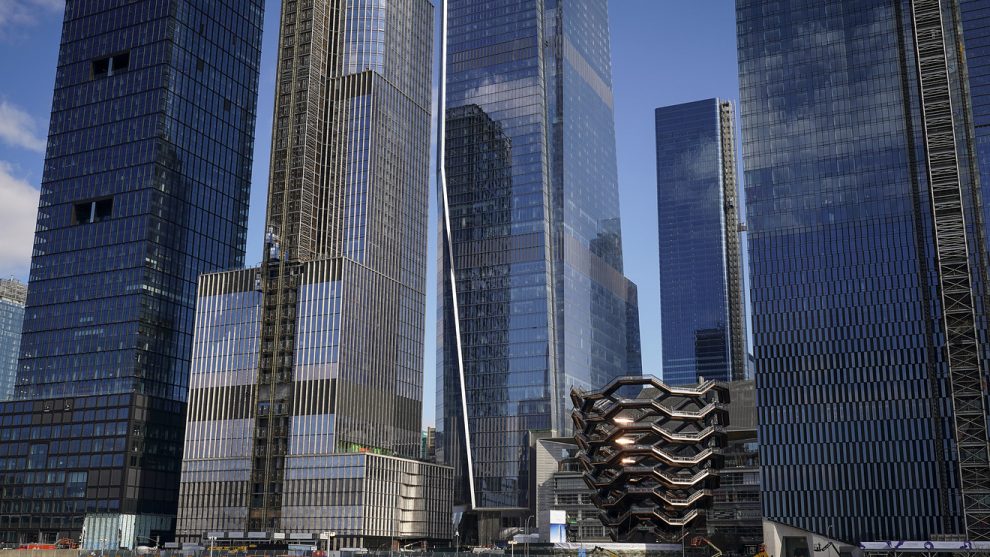
Bond investors are being pitched a new slice of New York City’s skyline made up of a mini-city of glass towers that have cropped up on Manhattan’s far west side.
On offer are $448 million of property bonds tied to 30 Hudson Yards, an office building that is part of a sprawling office-retail-cultural neighborhood that opened this spring and overlooks the Hudson River.
See: Hudson Yards offers shoppers a look at the mall of the future
Part of the appeal of owning a piece of trophy real estate is that its value typically holds up, or eventually recovers, in a recession.
But it can also give investors a bit more yield at a time when central banks are flirting with more monetary stimulus, which already has pushed many global government bond yields deeper into negative territory.
Check out: Value of debt with negative yields nears $12 trillion
“Yields are negative on government bonds in four or five European countries and in Japan,” said Christopher Sullivan, the chief investment officer at United Nations Federal Credit Union in New York. “There has been a preoccupation with anything that provides a smattering of yield globally.”
The 30 Hudson Yards bonds come from a new $1.43-billion first mortgage on the tower made by Deutsche Bank, Wells Fargo and Goldman Sachs, which the banks have sliced into different classes of bonds.
AAA-rated bonds on similar properties were sold to investors in May and June at a spread of 90 basis points to 120 basis points over Libor, an international interest-rate benchmark, according to Deutsche Bank data. Riskier B- bonds fetched 245 basis points to 390 basis points.
The spreads on a bond is the premium that investors demand to be paid over a risk-free benchmark.
The benchmark 10-year Treasury yield TMUBMUSD10Y, +0.04% dipped below 2%, a key psychological level, on Thursday.
Read: 10-year U.S. government bond yield settles at 2%
The new property bonds help finance a group of investors who recently paid $2.155 billion to own 1.5 million square feet of office space at 30 Hudson Yards, according to Fitch Ratings.
That group is comprised of The Related Companies, a key real-estate developer at the site, Arizona State Retirement System and two affiliates of Allianz, a global asset manager.
The partners in the project now own part of the tower entirely rented to AT&T’s WarnerMedia, which occupies floors 16 through 51, according to Fitch.
Still, a potential downfall of buying U.S. commercial property bonds is that they can be relatively illiquid when compared with the much larger U.S. corporate bond sector.
“These are more complicated and demand much more attention,” Sullivan said of property bonds. “You should have a relatively broad knowledge base of what goes into the valuation of these buildings.”







